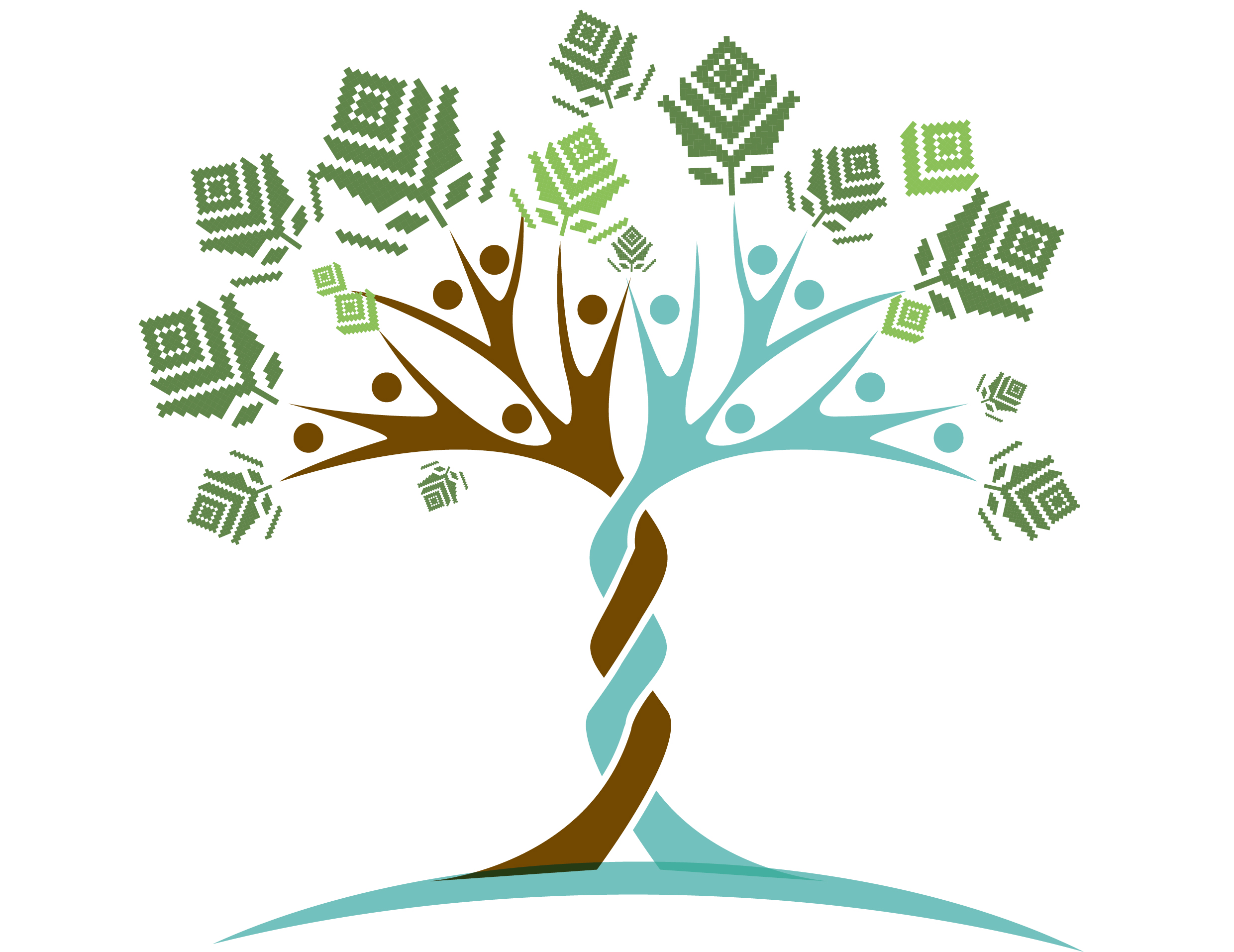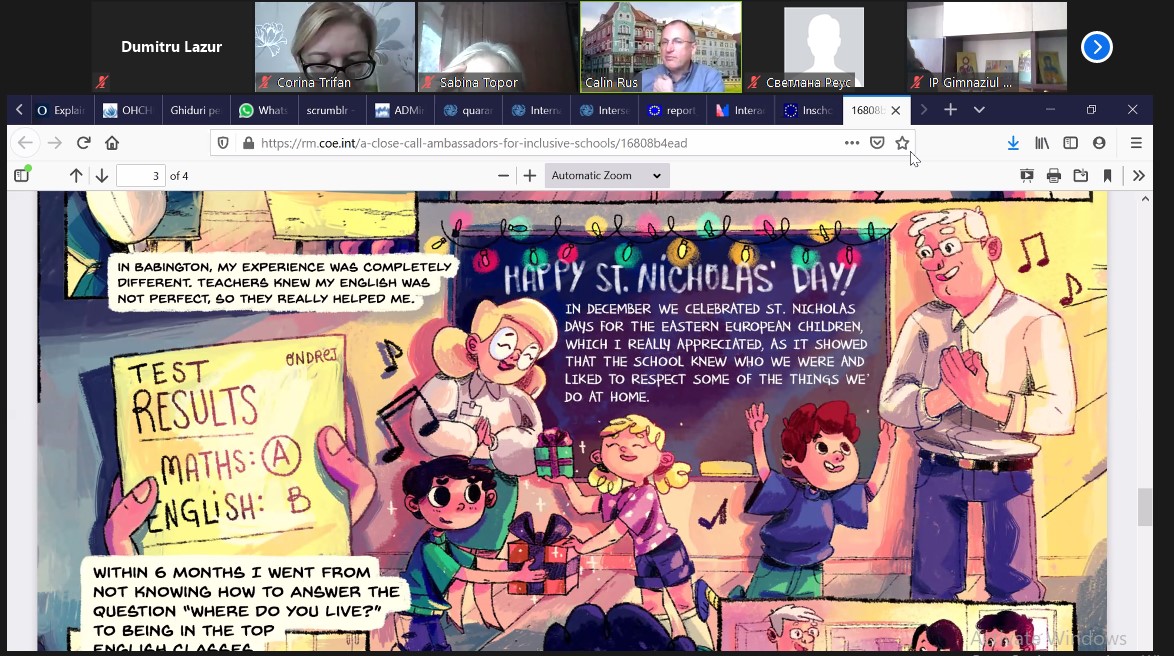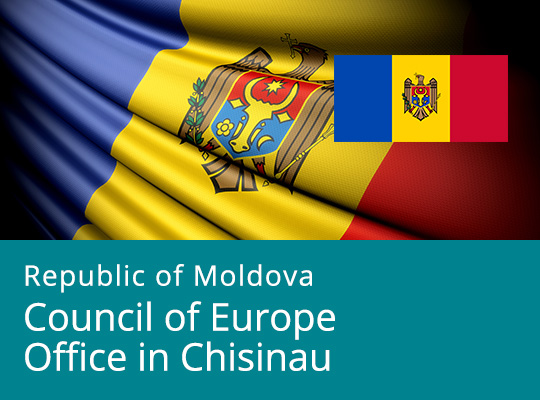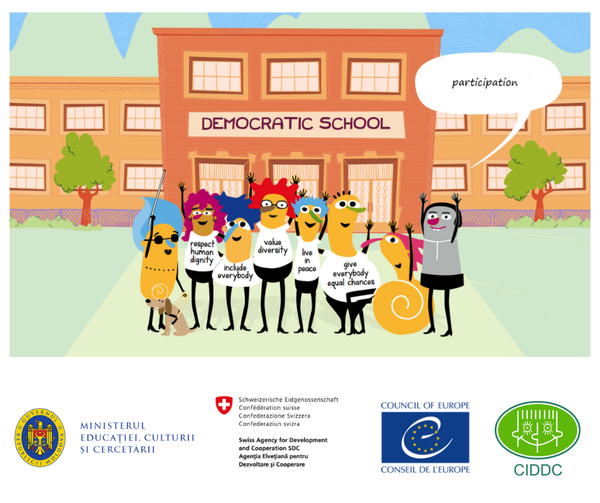Chisinau, 14 April 2021 – Around 80 civic education teachers, school psychologists and school deputy directors were introduced to techniques to develop positive attitudes and abilities in multi-ethnic classrooms with Roma pupils, in line with Council of Europe standards and relevant European best practices. The training activity was organised online on 12-14 April by the Council of Europe project “Education for Democracy in the Republic of Moldova” in cooperation with the Ministry of Education, Culture and Research and the German Embassy in Chisinau, in the framework of the German Presidency of the Committee of Ministers of the Council of Europe.
In her opening remarks, H.E. Angela Ganninger, Ambassador of Germany in the Republic of Moldova, stressed that during the ongoing German Presidency of the Committee of Ministers of the Council of Europe, Germany strives to work on upholding human rights, democracy and the rule of law, on shaping the future in this respect with a focus on new technologies and on bringing Europe closer to the people.
“It is within this last priority that Germany wants to shed a light on the concerns and expectation of minorities including Roma and Travellers as the largest minority in Europe. This workshop provided teachers and school psychologists with an excellent opportunity to examine the German experience and to work on relevant issues like communication and the inter-ethnic perception”, Ambassador Ganninger added.
William Massolin, Head of the Council of Europe Office in Chisinau, highlighted that access to quality education is a key part of the Council of Europe Strategic Action Plan for Roma and Traveller Inclusion (2020-2025). This recognises the crucial role that education plays in breaking the cycle of marginalisation and exclusion that many Roma still face.
“The Council of Europe has been working very hard in ensuring quality inclusive education, mainly through our Education Department, which has devised policies and tools that can be used. I would mention in particular the Reference Framework of Competences for Democratic Culture, which includes 20 competences for life in democratic and diverse societies”, William Massolin added.
On the first day of the workshop, guest speaker Dr. Ulrike Wolff-Jontofsohn, senior researcher and lecturer at Freie Universität Berlin, presented the German experience of ensuring access to quality education to Roma, focusing on the challenges, successful approaches and emerging educational strategies. Among the positive and encouraging trends, Dr. Wolff-Jontofsohn highlighted the following: the growing numbers of Roma children attending kindergartens and elementary education (60%); all Sinti and Roma children attending primary education (100%) and completing compulsory education (86%); the vast majority of pupils attending lower and middle tracks of secondary education; around 7% attending gymnasium and receiving their Abitur (entrance certificate for university), etc.
The workshop’s key expert, Calin Rus, Director of the Intercultural Institute of Timisoara (Romania), presented and discussed with the participants the best practices and experiences in the field of teaching tolerance and intercultural understanding in multi-ethnic classrooms with Roma pupils. The participants had the opportunity to share their experiences and discuss examples of activities that could contribute to improved inter-ethic perception and relations in classrooms with Roma pupils.
***
The project „Education for Democracy in the Republic of Moldova” is implemented by the Council of Europe and is financed by the Swiss Agency for Development and Cooperation (SDC) in the framework of “Moldova: Fostering Active Civic Engagement” Programme.









